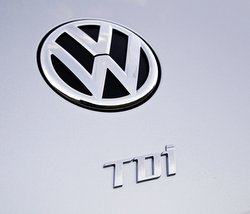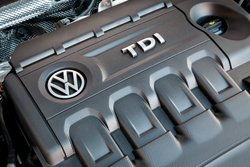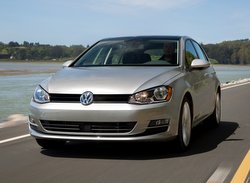Plans for Buy-backs and Penalties Announced

So, those of us in the U.S. who love diesels can finally exhale. And those of who think EVs are the cars of the future (in this case the same person), some applause is in order. The U.S. Department of Justice, the state of California and the Federal Trade Commission announced that they have a deal to resolve the 475,000 2.0L TDI-equipped vehicles sold in the U.S. with software that allowed them to meet emissions regulations during testing, but exceed those standards in normal operation.
The deal, which affects 2009-15 Volkswagen TDI diesel models of Jettas, Passats, Golfs and Beetles as well as the TDI Audi A3, means VW will buy-back or repair those models and pay into two separate funds—one to subsidize the purchase of clean diesel, alternative fuel or electric heavy-duty trucks, and a second one to fund electric vehicle marketing and infrastructure. The total tab to VW could end up around $15 billion.
TDI Owners Get Options
TDI owners will be able to have their cars repurchased by VW at their September 2015 retail value or may opt to get them repaired by VW (with a fix that

has not yet been announced or approved) so they are up to current emissions standards and also get a cash settlement because of VW’s malfeasance.
Volkswagen will set aside $10.03 billion for buy-backs, lease terminations or compensation along with repairs. Because the cheating software meant the TDIs were violating the Clean Air Act, VW will put $2.7 billion into a fund that truckers and trucking companies can tap into to upgrade their trucks to current emissions standard models. An additional $2 billion goes into funds to be used for electric vehicle infrastructure and marketing programs to build awareness and sales of zero emission vehicles.
As we said when we first wrote about this scandal, we don’t consider this an indictment of modern diesel technology, but it certainly has had an impact. VW’s diesel sales in the U.S. stopped and VW brand sales have suffered overall during the past nine months. Interestingly, Audi seems not to have been touched by all this in spite of being a heavily invested in TDI technology.
The Next Steps Are Unknown

The next step is the long road back. VW has been touting its gasoline technology in the interim and also has what we consider the best EV for the money on the market in the e-Golf. It remains to be seen what is possible to get the older TDIs up to current emissions standards—the question for consumers is what the changes will mean to fuel economy and performance, the twin selling points for diesels. And, although VW says it has a fix for its 3.0L V-6 TDI engines, that fix has not been approved by either the federal EPA or CARB.
We think that whatever Volkswagen does with its future TDIs (and they’ve said they remain committed to diesel technology), diesel engines are going to remain a potent tool for automakers to use to reach ever-increasing fuel economy standards during the next decade. BMW, Land Rover and Mercedes are proving that every day. While diesels clearly aren’t up to the California zero emission mandate, it would be interesting to see how some of the plug-in diesel models currently available in Europe would do over here.
We’re ready for another chapter to begin—and promise to continue to cover it for Clean Fleet Report readers.
Related Stories You Might Enjoy:
The legacy of Volkswagen clean diesel
Road Test: 2016 Chevrolet Colorado Diesel
Road Test: 2016 BMW 328d xDrive Sports Wagon
First Drive: 2017 Jaguar XE
First Drive: 2016 Nissan Titan XD
Disclosure
Clean Fleet Report staff have worked for in the past and retain close relations with Volkswagen and other companies and organizations in the diesel industry. The views expressed here are the personal ones of the author related to this issue.

0 thoughts on “The VW Diesel Scandal Begins New Chapter”